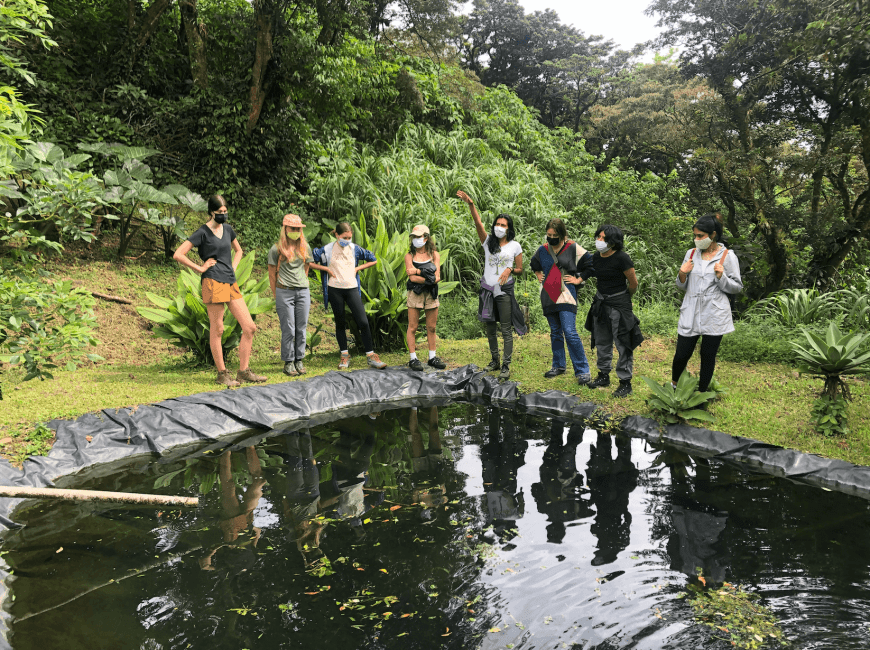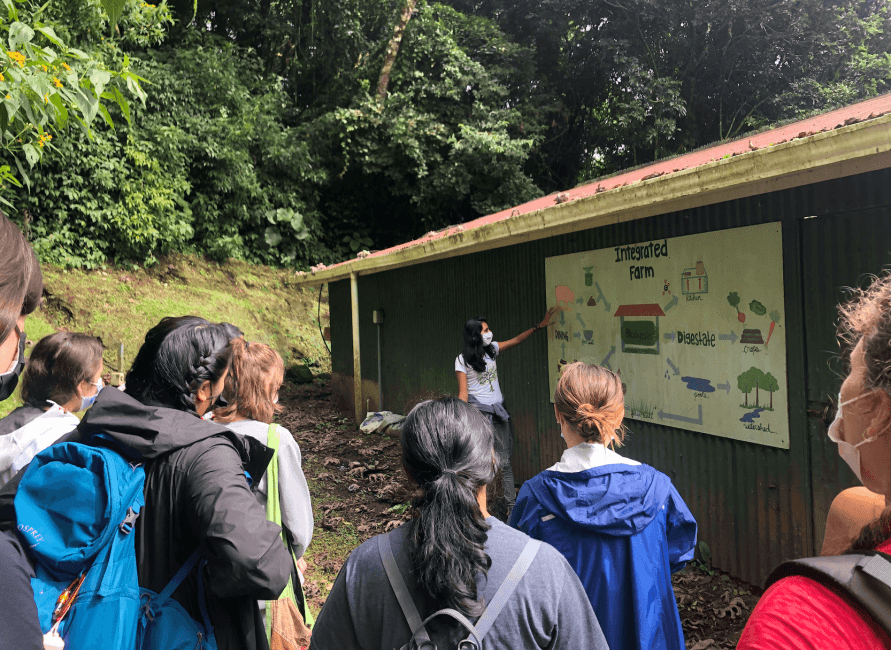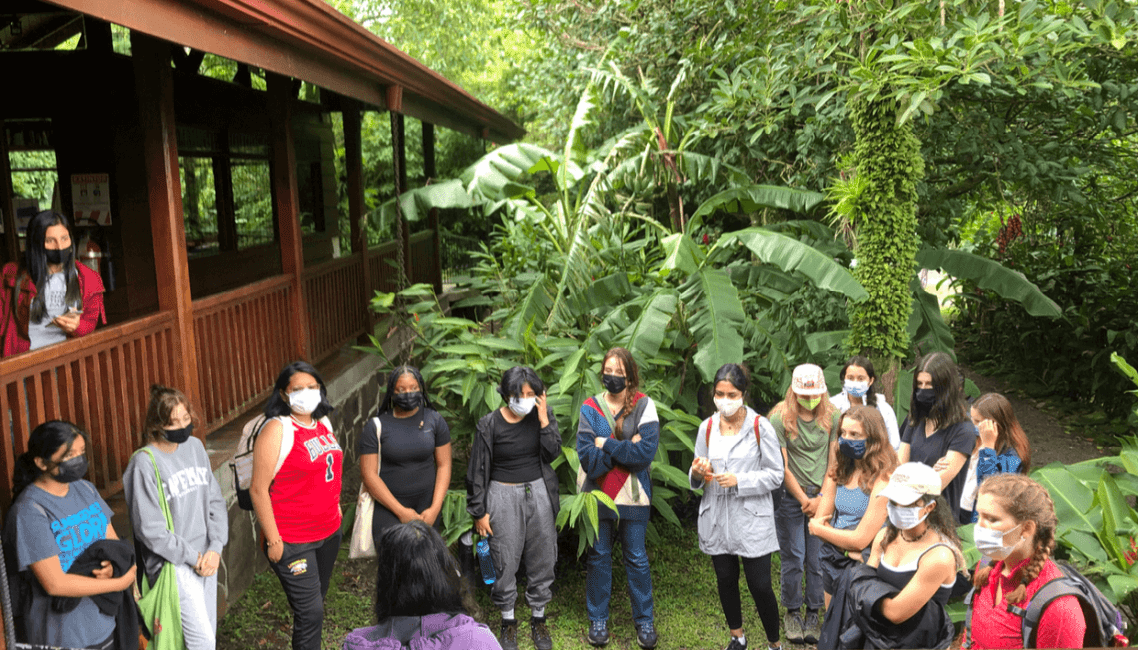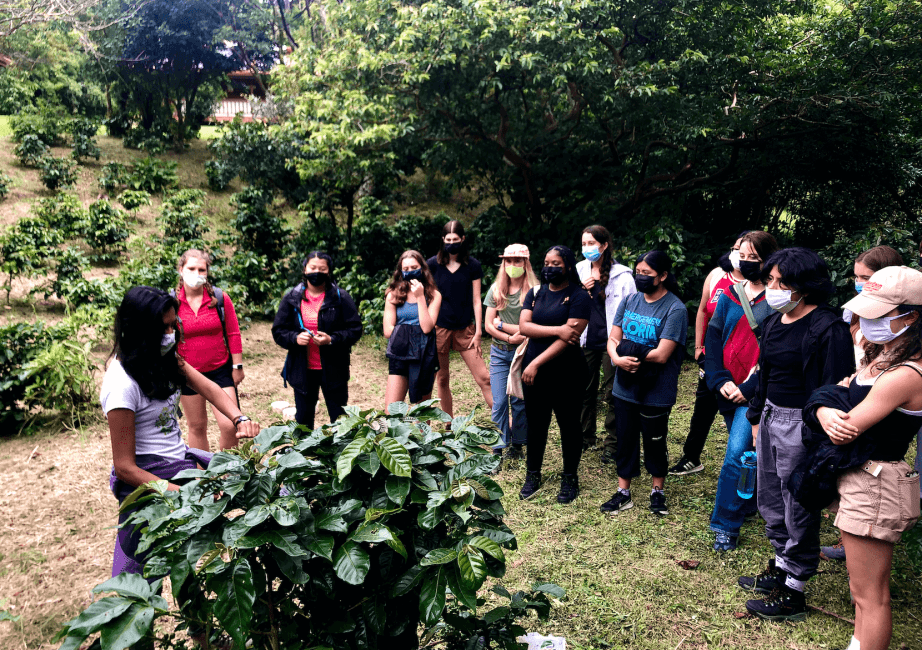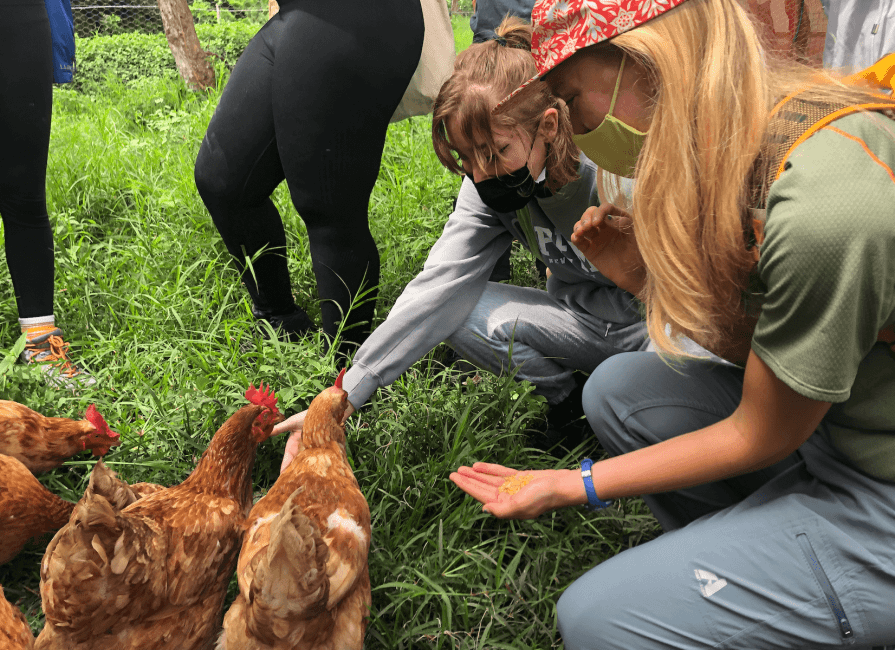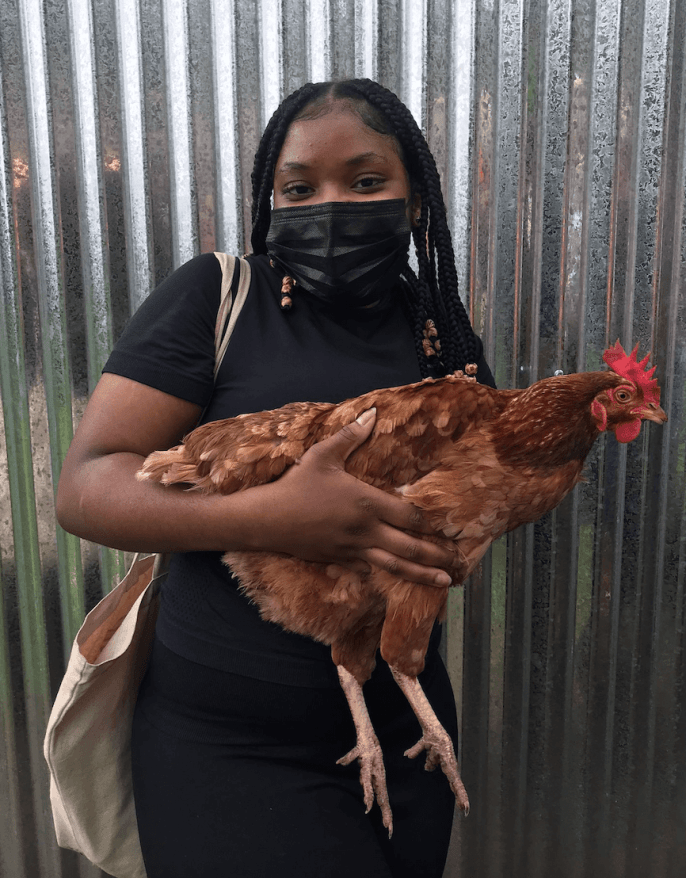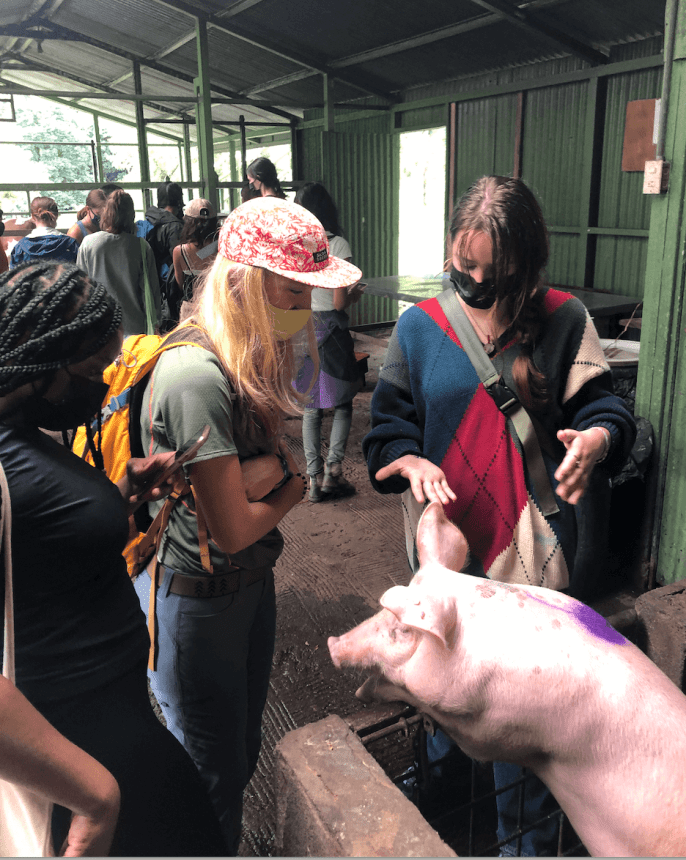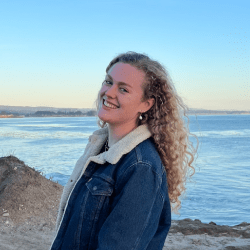Sustainability Tour of the Monteverde Campus
Women in STEM had a blast touring the Monteverde campus and learning about the sustainable practices here on site. The CIEE Monteverde campus has inspiring technologies and systems in place to ensure that the campus is as eco-friendly as possible. This serves as a perfect model for the students to experience firsthand how sustainable technologies can be utilized to help a community run. The students had fun learning about everything here, from the biodigester to the solar-powered water heaters.
We began the tour by learning about both the importance and flaws in our recycling system, especially in regards to plastic. While recycling is beneficial in some ways, plastic can only be recycled so many times before it must be thrown away. Here the students are in front of the compost, recycling, and trash bins outside the dining hall discussing these topics.
We then walked over to CIEE’s newest addition to campus, the coffee farm! Here the students are learning about the ways that CIEE grows its coffee plants using sustainable agriculture techniques. The biodigester, which uses wastewater on campus, is a part of the puzzle in keeping these coffee plants watered.
After we learned about the biodigester and coffee farm, it was time to visit the animals! On our first stop, we got to feed the chickens, and in return, some of them let us pick them up.
After we visited the chickens, we went over to say hi to the pigs and cows. For some students, this was their first time seeing live cows and pigs! We learned that the pigs are fed the leftover food scraps from our meals in the dining hall. Some of the pigs were very excited to meet us and even jumped up to say hello.
We then went to look at the water storage area right next to where the animals live. The surrounding greenery was spectacular, and there were even some friendly fish living in the pond. There are pumps within the pond to keep the water aerated.
Last but not least, we brought all of what we had learned together and looked at the processes within the whole integrated farm. On our walk back, the students were excited to discuss all of the different sustainable methods we learned.
Related Posts
Global Friendships
The last week on the Monteverde campus has flown by at a rapid pace. However, it seems like ages have passes since the student arrived in the cloud forest. This... keep reading
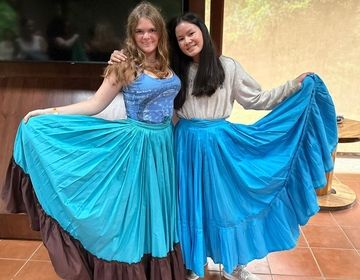
Folklorico Dance, a core memory made
Student of session 2 shares her experience of her final days in Costa Rica.
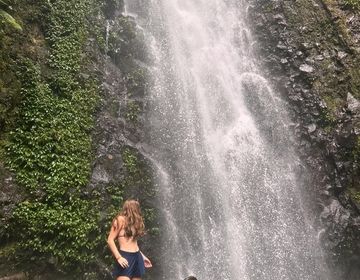
Soaring Through the Clouds (Featuring Three Guest Student Writers)
To best sum up our adventurous weekend, we have three guest writers today. Check out what they thought below! Ella Buerkele gives us a beautiful overview of Saturday: On Saturday... keep reading
